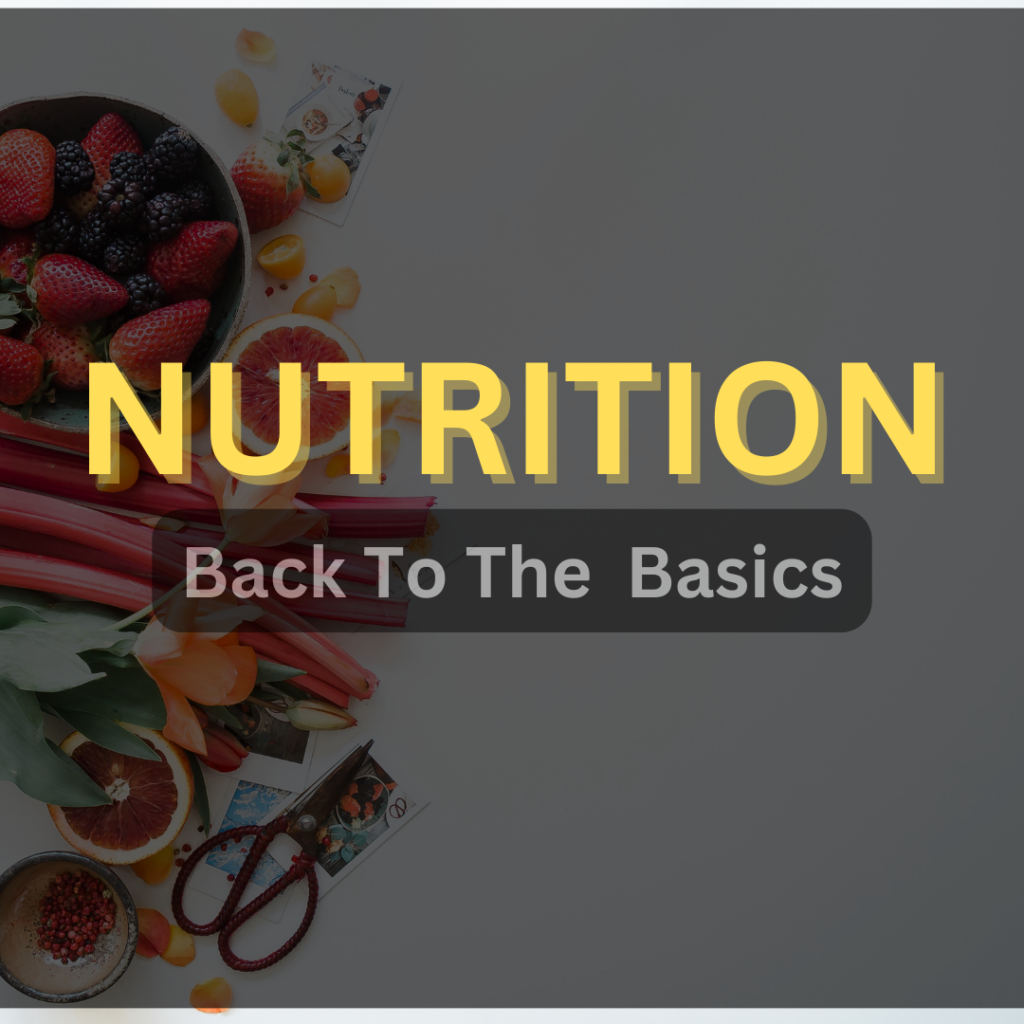Nutrition: Back to the Basics
Have you ever been on a diet plan and wondered why you can never seem to maintain the results? Many people can relate to this question; it’s a very common issue!
Most commonly, people will choose a restrictive diet that eliminates certain foods altogether. However, this can be the beginning of a potential problem when you start achieving your desired results.
People often opt for fad diets, such as paleo, keto, high carb, no carb, vegan, vegetarian, or a combination of all of the above. While these may work short-term for some people, they are not always the long-term solution.
Key Takeaways:
A good tip is to pick a diet that works for you, allowing you to eat the foods you enjoy (nutritious, of course :)) while staying within a certain caloric and macronutrient range.
When someone is told to never eat a certain type of food again, it can promote an unhealthy relationship with food and steer them away from a sustainable lifestyle.
It’s not a big issue to remove a certain type of food for a period of time to speed up fat loss and help the body in a positive way, but it does not have to be permanent.
The basic dietary focus should be to stay below, be at, or go above caloric maintenance for each individual goal they have. For instance, if you are trying to lose body fat, simply focus on eating fewer calories than you burn. This will result in a net calorie deficit, leading to gradual fat loss. On the other hand, you can gain muscle by implementing a calorie surplus, consuming slightly more than you burn over time. Muscle gain occurs with sufficient protein intake, aiming for 1.6gm-2.4gm of protein per kilo of weight when consistently training.
Proteins, Carbohydrates, & Fats
Protein is the building block of gaining muscle. It is essential for building muscle, repairing tissue, rebuilding cell membranes, and producing enzymes and hormones. Using a quality protein powder may help tone your body and build muscle.
Carbohydrates are your fuel source, providing glycogen for the muscles and aiding in protein absorption for recovery and repair. Carbohydrates should be added to pre- and post-workout routines for optimal performance.
Fats are a calorie-dense macronutrient that helps maintain hormone levels. Consume healthy fats like avocado, fish or krill oil, dark chocolate, grass-fed butter, coconut oil, and eggs for balanced nutrition.
Guide for How Much to Eat
The amount of calories consumed daily depends on the individual and their goals. Adjust your calorie intake based on the results you see. Protein intake should be around 1gm per 2.2kg of lean body mass. For example, if you weigh 90 kilos and have a lean body mass, aim for roughly 200 grams of protein per day. Whether you’re looking to add lean muscle or lose fat, protein intake should be consistent, and fats should make up about 25-30 percent of your dietary intake. The remaining calories should come from carbohydrates, adjusted based on your training goals.
Things to Avoid
One thing that can halt your progress is alcohol. It hinders sleep, muscle growth, concentration, muscle repair, energy levels, and promotes fat gain. In fact, alcohol equals about 7 calories per gram of fat. Awareness of the negative effects of alcohol consumption is crucial, as it not only halts progress but also sets you back. Alcohol provides no nutritional value to your body. If you do choose to drink alcohol, make sure to hydrate and stay within your limits!
In summary, focusing on macronutrients and caloric intake based on your goals will determine your results. There’s no scenario of out-training bad nutrition to achieve great results. The average individual is much more likely to stick to a simple nutritional plan that’s easy to sustain rather than feeling the need to sacrifice their favourite foods.
Getting the basics right, such as macronutrients and caloric intake based on your training goals, is the first step.
Once you have that covered, nutrient timing becomes the next question.
Take look at this article next – Pre Workout Nutrition
